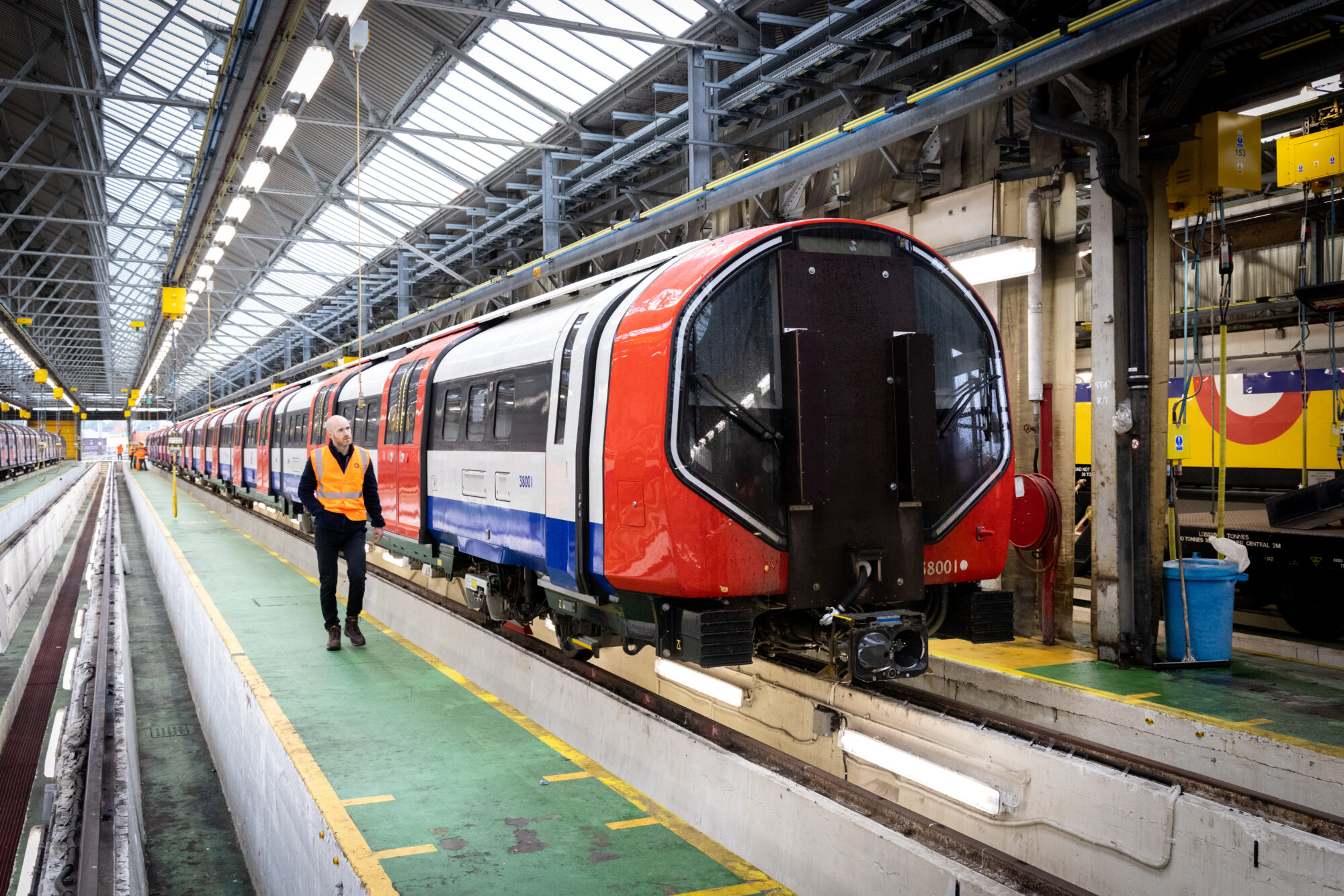Transport for London (TfL) has welcomed the first of the new Piccadilly line trains to the capital, ahead of a programme of intensive testing before the new trains start entering service by the end of 2025.
The test train is the first of a fleet of 94 new trains that are being built for TfL by Siemens Mobility to replace the existing fleet which is nearly 50 years old. They are part of a £2.9bn modernisation programme which will boost journey times, train frequency and reliability as well as making the Piccadilly line more accessible and sustainable.
Around 80% of the new trains will be built at Siemens Mobility’s new factory in Goole, East Yorkshire, which was officially opened earlier this month. The test train was built in Siemens Mobility’s factory in Vienna and has spent the last year on the test track in Wildenrath in Germany. From there, it made its 400-mile journey to London where it will undergo a period of commissioning activities before rigorous integration testing begins to ensure it is compatible with existing infrastructure on the Piccadilly line. Testing will initially take place overnight during engineering hours and some planned closures, with test trains running during the day in gaps between normal services as the date of their introduction gets closer.
The new Piccadilly line trains are set to transform the journeys of millions of customers on one of the Underground’s busiest lines. The nine-carriage trains will increase capacity by around 10% and feature walk-through, air-conditioned carriages, wider all-double doorways to help customers get on and off more easily, enhanced digital display screens for real-time customer information, and on-train CCTV cameras for additional customer security. The trains are lighter than existing designs which means they are more energy efficient and provide a smoother ride for customers, consuming 20% less energy.
All of the new Piccadilly line trains are expected to be in service by the end of 2027 when the frequency of trains will increase from the current 24 trains per hour to 27 trains per hour.
The Mayor of London, Sadiq Khan, said:
“It’s an exciting moment for London as testing begins on the new Piccadilly line trains. These state-of-the-art trains – most of which will be manufactured here in the UK – will be more spacious, equipped with CCTV cameras and, for the first time ever in a deep Tube train, air-conditioned, to make everyone’s journeys more comfortable.
“These new trains are just one example of the work we’re doing to continue delivering the world-class transport network Londoners deserve, building a better, greener London for everyone.”
Stuart Harvey, TfL’s Chief Capital Officer, said:
“The countdown is on for the next generation of Tube trains to start serving London, with the arrival of the first new Piccadilly line train in the capital this month. These new trains are going to transform the experience of millions of our customers, providing a more frequent and reliable service on walk-through, air-conditioned trains with a host of features that will make journeys quicker, easier and more comfortable. We now have a year of rigorously testing the new trains before we start bringing them into service by the end of 2025.”
Sambit Banerjee, Joint CEO at Siemens Mobility, said:
“I’m delighted that the first new Piccadilly line train has arrived in London for testing, an exciting milestone made possible by the great partnership between Siemens Mobility and TfL. With 80% of the new Piccadilly line trains being assembled in our new state-of-the-art Rail Village in Goole, Siemens Mobility and TfL are working together to back British jobs and transform rail travel in the capital.”
The scale of the Piccadilly Line Upgrade, which is taking place on one of London’s deepest Tube lines with some of the oldest track and signalling infrastructure, means that a series of closures are ongoing to complete vital track and platform upgrades. TfL is also using any part closures as an opportunity to complete additional depot, signalling, power supply and track maintenance work to help keep the line in the best condition possible to provide a safe and reliable service for customers.
TfL is also progressing work on plans to upgrade and extend the Bakerloo line, with the immediate priority securing the long-term capital funding certainty that would allow the replacement of the existing 36-train Bakerloo line fleet. At over 50 years old, it is the oldest operating in daily passenger service anywhere in the UK. Securing a new fleet of trains, which the Siemens Mobility factory in Goole would be expected to deliver, and signalling would transform the Bakerloo line, boosting accessibility, reliability and comfort for the millions of customers who use it each year.

